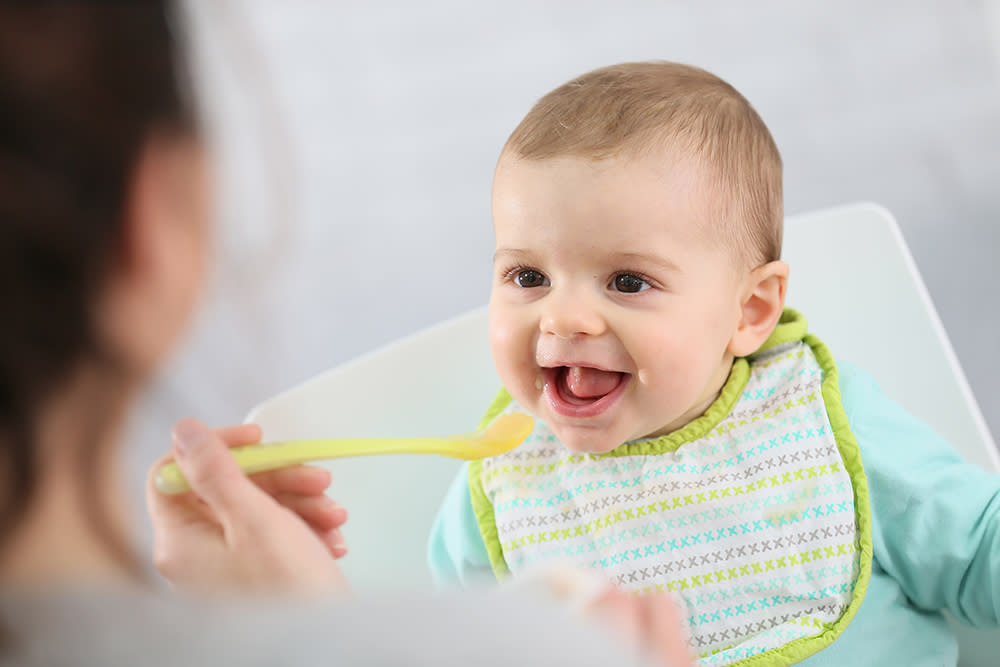Can a New Product Help Prevent Peanut Allergies?

With the threefold increase in peanut allergy in children since 1997, it is no surprise that scientists and doctors are searching relentlessly for a way to prevent this often dangerous condition.
Recent studies have shown promising results, suggesting that introducing potential allergens, like peanuts, earlier rather than later may help reduce risk for food allergies in the future.
And now an entrepreneur is getting into the mix. Assured Bites Inc., a New York-based family health and wellness company, designed Hello, Peanut!, a product that, according to the company's website, "...enables one to easily and gradually introduce small amounts of peanut to their infant..."

The seven-day Hello, Peanut!â„¢ system consists of sachets with incremental amounts of organic peanut powder that can be mixed into first stage baby food, thus making introduction of peanuts easy for babies as young as 5 months. After the introductory week, the company suggests using Hello, Peanut!â„¢ maintenance packets until children can start consuming peanuts in their whole form (around age three). The product is pending FDA approval for its ability to prevent peanut allergies.
The research
The press release of Hello, Peanut! mentions two recent research studies to support the safety and efficacy of its product.
The first study, Learning Early About Peanuts (LEAP), is a randomized research study where a group of 4 to 11 month old infants at risk for food allergy were fed incremental doses of a peanut snack until they reached 60 months. The results of the study demonstrated the possibility to prevent peanut allergy in at-risk infants by early and gradual exposure to peanuts in a controlled way.
A follow-up study, Enquiring About Tolerance or EAT study, explored the prevention peanut and other types of food allergies in children who were not at risk. In this research project, infants who were breastfed exclusively until 6 months were compared to those who were introduced to a variety of allergenic foods from as early as 3 months. The families in the experimental group were instructed to feed their children allergenic foods following a strict protocol.
The children whose parents followed the protocol were up to 67% less likely to have a food allergy when they were older (from 1 to 3 years) compared to those who were exclusively breastfed until 6 months. Unfortunately, the results of the study cannot be called conclusive because the families participating in it found it very hard to adhere to a strict schedule of administering allergenic foods and many dropped out. As a result, although the researchers established that introducing allergenic foods from early on is safe, they could not produce enough evidence to establish the preventative effect with certainty.
The researcher behind both studies, Gideon Lack, MD, professor of pediatric allergy, Kings College in London, United Kingdom, is optimistic about their results, saying you can tell parents that their babies can eat peanuts or should eat peanuts. "I, frankly, think it should be the latter."
Other experts approach the results with more caution. Marion Groetch, Senior Dietitian at Jaffe Food Allergy Institute at Mount Sinai and one of the authors of the upcoming AAAAI Workgroup Report for peanut introduction in infants notes, "We do not know the preventative impact of early introduction of peanut in children without this risk."
Main takeaways for parents:
While we are still waiting for more conclusive research on ways to prevent peanut allergy in children, experts seem to agree there is no reason to delay introduction of peanuts after solids are started in children who are not at risk for food allergies. Children who have history of other food allergies or eczema may need an individualized approach to introduction of allergenic foods that needs to be discussed with their doctor.
Parents can safely introduce peanuts in several ways. One way is to blend a small amounts of peanut butter into baby food or spread some peanut butter on a toast and serve it as finger food. Some families may find using a product like Hello, Peanut!â„¢ easier and less messy. This product also allows introduce peanuts in small, gradually increasing amounts. Dr. David Erstein, the creator of Hello, Peanut!â„¢ explains that "...most pediatricians and allergists advise a slow and gradual approach to food introduction. Giving an infant a lot of a new food for the first time comes with its risks. Often a small amount of food introduced will have a small reaction."
It is very important to be familiarwith the symptoms of a food allergy. Call your doctor to discuss any non-life threatening reactions your child may be experiencing and have an emergency plan if your child has a severe reaction.
Finally, keep in mind is that peanut butter is quite sticky and can be a choking hazard. Avoid feeding your baby peanut butter from a spoon or giving him whole peanuts until at least the age of 3.
As a mom of a child with a nut allergy, I know how taxing and potentially life-threatening normal activities like eating out, visiting friends, or attending parties can be for those who need to avoid certain foods. I think Hello, Peanut! can be a great alternative for parents and am very excited to see the promising results of the latest studies in the field of peanut allergy prevention.
Natalia Stasenko MS, RD, CDN is a pediatric dietitian based in London and New York. She offers an online, one-on-one support program for parents of picky eaters called Feeding Bytes, and is the mother of three. Natalia is the cowriter of the cookbook
, and when not writing, teaching or consulting, she is in the kitchen cooking and eating with her family. Follow Natalia on Twitter, read more of her stories on tribecanutrition.com.

